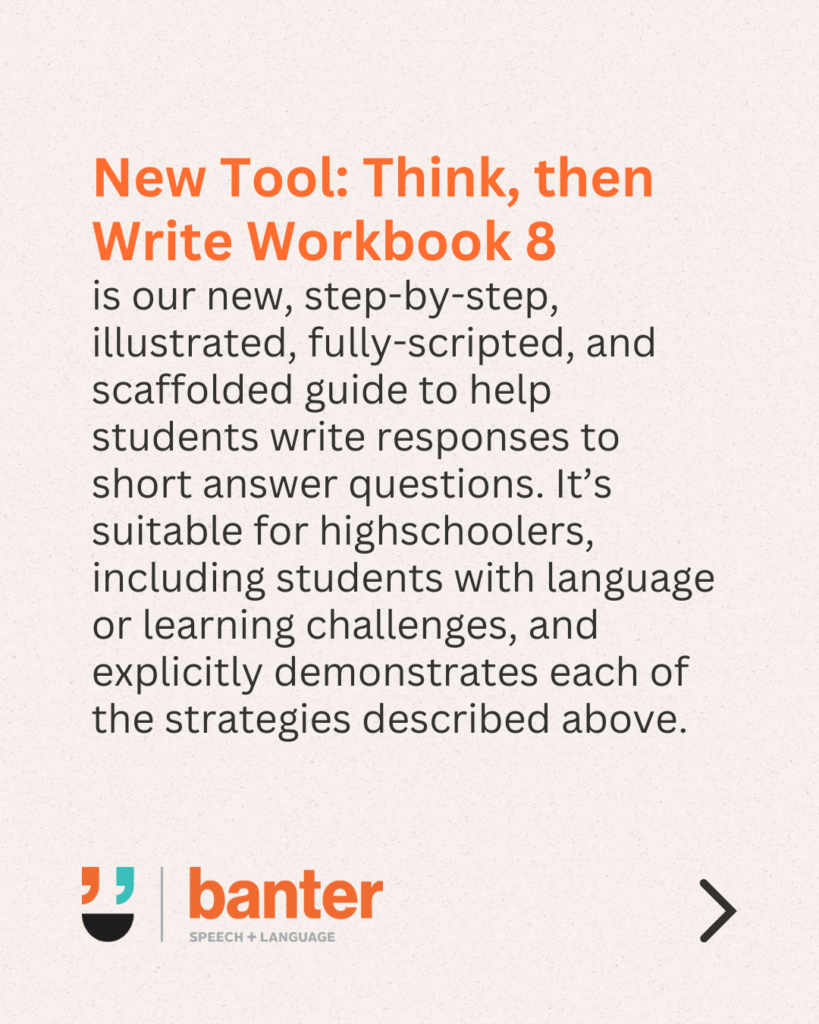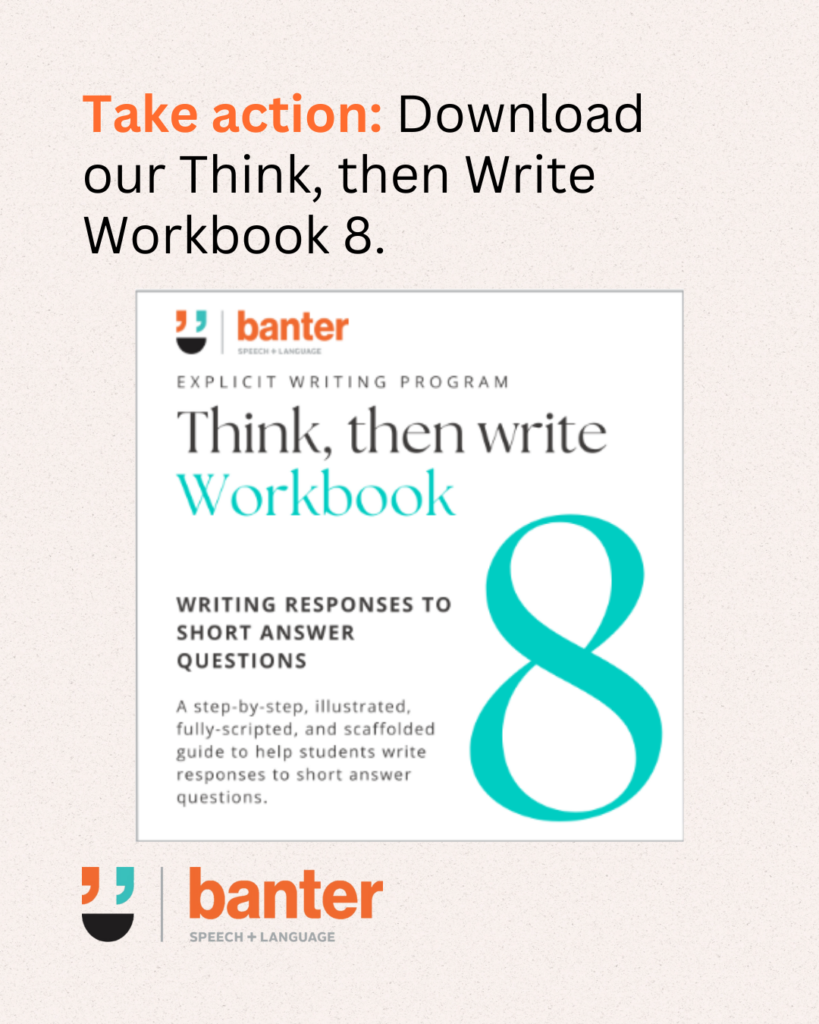For school success, help high schoolers write better responses to short answer exam questions
Big picture:
Many highschoolers struggle with short answer questions in tests and exams, including many students with developmental and other language disorders, dyslexia, and dysgraphia.
Key skills:
To do well with short answer exam questions, students need:
- knowledge about the subject (e.g. history, science, English, etc.); and
- strategies to understand and answer short answer questions in exams.
“But I knew the answer”:
Many students with communication challenges study hard for tests, but underperform on short answer questions because they:
- don’t understand what, exactly, the question is asking them to do; and
- lack skills and writing strategies to demonstrate their knowledge to the markers.
How to help:
- Review lots of real world examples of short answer exam questions across different subjects.
- Explicitly teach meanings of high frequency exam verbs, like ‘outline’, ‘explain’, ‘describe’ and ‘evaluate’ so students know what they are being asked.
- Explicitly teach how to recast (rephrase) words used in the question when writing answers so students are more likely to answer the question being asked (rather than being irrelevant).
- Teach students the study strategy of providing concrete examples to improve recall of information, the specificity of answers, and to demonstrate knowledge to markers.
- Critically review lots of model (good) real world exam answers to see the strategies in action.
- Do lots of practice tests under exam conditions (a very effective evidence-based study technique).
New Tool:
Think, then Write Workbook 8 is our new, step-by-step, illustrated, fully-scripted, and scaffolded guide to help students write responses to short answer questions. It’s suitable for highschoolers, including students with language or learning challenges, and explicitly demonstrates each of the strategies described above.
Take action:
Download our Think, then Write Workbook 8.









Hi there, I’m David Kinnane.
Principal Speech Pathologist, Banter Speech & Language
Our talented team of certified practising speech pathologists provide unhurried, personalised and evidence-based speech pathology care to children and adults in the Inner West of Sydney and beyond, both in our clinic and via telehealth.








